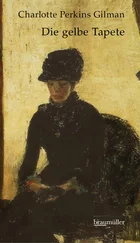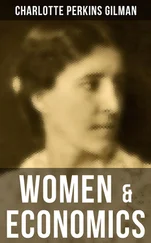Charlotte Gilman - Concerning Children
Здесь есть возможность читать онлайн «Charlotte Gilman - Concerning Children» — ознакомительный отрывок электронной книги совершенно бесплатно, а после прочтения отрывка купить полную версию. В некоторых случаях можно слушать аудио, скачать через торрент в формате fb2 и присутствует краткое содержание. Жанр: foreign_prose, на английском языке. Описание произведения, (предисловие) а так же отзывы посетителей доступны на портале библиотеки ЛибКат.
- Название:Concerning Children
- Автор:
- Жанр:
- Год:неизвестен
- ISBN:нет данных
- Рейтинг книги:5 / 5. Голосов: 1
-
Избранное:Добавить в избранное
- Отзывы:
-
Ваша оценка:
- 100
- 1
- 2
- 3
- 4
- 5
Concerning Children: краткое содержание, описание и аннотация
Предлагаем к чтению аннотацию, описание, краткое содержание или предисловие (зависит от того, что написал сам автор книги «Concerning Children»). Если вы не нашли необходимую информацию о книге — напишите в комментариях, мы постараемся отыскать её.
Concerning Children — читать онлайн ознакомительный отрывок
Ниже представлен текст книги, разбитый по страницам. Система сохранения места последней прочитанной страницы, позволяет с удобством читать онлайн бесплатно книгу «Concerning Children», без необходимости каждый раз заново искать на чём Вы остановились. Поставьте закладку, и сможете в любой момент перейти на страницу, на которой закончили чтение.
Интервал:
Закладка:
Before going further, let us look at the average mental workings of the human creature, and see if it seems to us in smooth running order. We have made enormous progress in brain development, and we manifest wide differences in brain power. But clearly discernible through all the progress and all the difference is this large fault in our mental machinery, – a peculiar discrepancy between the sum of our knowledge and the sum of our behaviour. Man being conscious and intelligent, it would seem that to teach him the desirability of a given course of action would be sufficient. That it is not sufficient, every mother, every teacher, every preacher, every discoverer, inventor, reformer, knows full well.
Instruction may be poured in by the ton: it comes out in action by the ounce. You may teach and preach and pray for two thousand years, and very imperfectly Christianise a small portion of the human race. You may exhort and command and reiterate; and yet the sinner, whether infant or adult, remains obdurate. No wonder we imagined an active Enemy striving to oppose us, so difficult was good behaviour in spite of all our efforts. It has never occurred to us that we were pursuing an entirely erroneous method. We uttered like parrots the pregnant proverb, "Example is better than precept," learning nothing by it.
What does that simple saying mean? That one learns better by observation than by instruction, especially when instruction is coupled with command. This being a clearly established fact, why have we not profited by it? Because our brains, all of our brains from the beginning of time, have been blurred and blinded and weakened by the same mistake in infant education.
What is this mistake? What is it we have done so patiently and faithfully all these years to every one of the human race which has injured the natural working of the brain? This: we have systematically checked in our children acts which were the natural sequence of their observation and inference; and enforced acts which, to the child's mind, had no reason. Thus we have carefully trained a world of people to the habit of acting without understanding, and also of understanding without acting. Because we were unable even to entirely subvert natural brain processes, because our children must needs do some things of their own motion and not in obedience to us, therefore some power of judgment and self-government has grown in humanity. But because we have been so largely successful in our dealings with the helpless little brain is there so little power of judgment and self-government among us.
Observe, too, that our most intelligent progress is made in those arts, trades, professions, sciences, wherein little children are not trained; and that our most palpable deficiencies are in the morals, manners, and general personal relations of life, wherein little children are trained. The things we are compelled to do in obedience we make no progress in. They are either obeyed or disobeyed, but are not understood and improved upon: they stand like the customs of China. The things we learn by understanding and practising are open to further knowledge and growth.
A normal human act, as distinguished from the instinctive behaviour of lower animals or from mere excito-motary reaction, involves always these three stages, – impression, judgment, expression. These are not separate, but are orderly steps in the great main fact of life, – action. It is all a part of that transmission of energy which appears to be the business of the universe.
The sun's heat pours upon the earth, and passes through whatever substance it strikes, coming out transformed variously, according to the nature of the substance. Man receives his complement of energy, like every other creature, – physical stimulus from food and fire, psychical stimulus from its less known sources; and these impressions tend to flow through him into expression as naturally as, though with more complexity than, in other creatures.
The song of the skylark and Shelley's "Skylark" show this wide difference in the amount and quality of transmission, yet are both expressions of the same impressions, plus those wider impressions to which the poet's organism was open.
The distinctive power of man is that of connected action. Our immense capacity for receiving and retaining impressions gives us that world-stock of stored information and its arrested stimulus which we call knowledge. But wisdom, the higher word, refers to our capacity for considering what we know, – handling and balancing the information in stock, and so acting judiciously from the best impression or group of impressions, instead of indiscriminately from the latest or from any that happens to be uppermost.
This power, in cases of immediate danger, we call "presence of mind." Similarly, when otherwise intelligent persons do visibly foolish things, we call it "absence of mind." The brain, as an organ, is present in both cases; but in the former it is connected with action, in the latter the connection is broken. The word "thoughtless," as applied to so large a share of our walk and conversation, describes this same absence of the mind from the place where it is wanted.
In training the brain of the child, first importance lies in cultivating this connection between the mind and the behaviour. As with eye or hand, we should induce frequent repetition of the desired motions, that the habit of right action be formed. If the child is steadily encouraged to act in this natural connection, in orderly sequence of feeling, thought, and action, he would grow into constant "presence of mind" in his behaviour. Habits work in all directions; and a habit of thoughtful behaviour is as easy to form, really easier, than a habit of obedience, – easier, because it would be the natural function of the brain to govern behaviour if we did not so laboriously contradict it. We have preferred submission to intelligence, and have got neither, – not intelligence because we have so violently discouraged it, and not submission because the healthy upward forces of human brain growth will not submit. Those races where the children are most absolutely subservient, as with the Chinese and Hindu, where parents are fairly worshipped and blindly obeyed, are not races of free and progressive thought and healthy activity.
The potential attitude of mind involved in our method is shown in that perfect expression of "childish faith," – "It's so because mamma says so; and, if mamma says so, 'tis so if 'tain't so." That position makes it very easy for mamma as long as "childish faith" endures; but how does it help the man she has reared in this idyllic falsehood? The painful truth is that we have used childish weaknesses to make our government easy for us, instead of cultivating the powers that shall make life easy to them. A child's limitless credulity is the open door of imposition, and is ruthlessly taken advantage of by mother and father, nurse and older companion generally.
As a feature in brain-training, this, of course, works absolute harm. It prolongs the infant weakness of the racial brain, keeps us credulous and open to all imposture, hinders our true growth. What we should do is to help the child to question and find out, – teach him to learn, not to believe. He does learn, of course. We cannot shut out the workings of natural laws from him altogether. Gradually he discovers that fire is hot and water wet, that stone is hard to fall on, and that there are "pins in pussy's toes." His brain is always being healthily acted upon by facts, his power of discrimination he practises as best he may, and his behaviour follows inevitably.
Given such a child, with such and such an inheritance of constitution and tendency, submit him to certain impressions, and he behaves accordingly. He has felt. He has thought. He is about to do. Here comes in our universal error. We concern ourselves almost wholly with what the child does, and ignore what he feels and thinks. We check the behaviour which is the logical result of his feeling and thinking, and substitute another and different behaviour for his adoption.
Читать дальшеИнтервал:
Закладка:
Похожие книги на «Concerning Children»
Представляем Вашему вниманию похожие книги на «Concerning Children» списком для выбора. Мы отобрали схожую по названию и смыслу литературу в надежде предоставить читателям больше вариантов отыскать новые, интересные, ещё непрочитанные произведения.
Обсуждение, отзывы о книге «Concerning Children» и просто собственные мнения читателей. Оставьте ваши комментарии, напишите, что Вы думаете о произведении, его смысле или главных героях. Укажите что конкретно понравилось, а что нет, и почему Вы так считаете.












